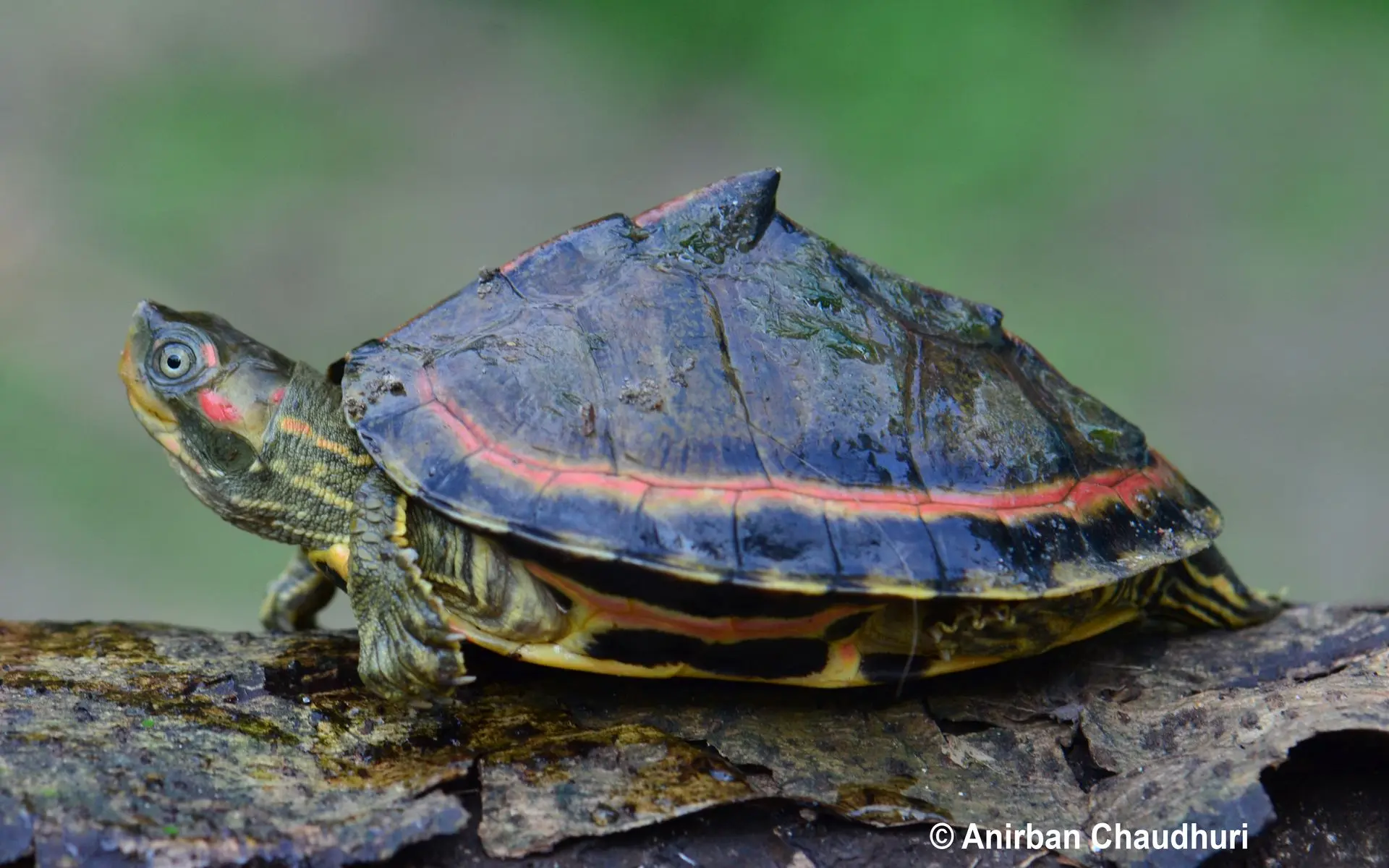Indian Tent turtle (Pangshura tentoria)
Taxonomy
Domain: Eukaryota
Kingdom: Animalia
Phylum
: Chordata
Class : Reptilia
Order : Testudines
Suborder: Cryptodira
Superfamily : Testudinoidea
Family : Geoemydidae
Genus :
Pangshura
Species : P.
tentoria (Gray, 183)

Common Names
Deccan Saw-back Terrapin, South-Indian Roofed Turtle, Majhari khata, Rangin kachoba.
Conservation Status
IWPA : Schedule I
Cites : Appendix II
Geographical Distribution
The species is found in peninsular India, including Odisha, Maharashtra, Andhra Pradesh, Assam and Madhya Pradesh. It is also found in the Mahanadi and Godavari River drainages.
General Information
The Indian Tent Turtle breeds during the monsoon season, which typically lasts from June to September. Females lay their eggs in nests dug in sandy or soft soil, usually laying between 2-5 eggs. The incubation period lasts between 70-90 days. These turtles inhabit still water pools and slow-moving water near riverbanks. They are also found in wetlands, ponds and river channels with sandy substrates. Mid-river islands serve as basking and breeding grounds for them. As omnivores, Indian tent turtles eat both plants and animals, including insects, snails, small fish, and aquatic plants. In agricultural fields, they are known to feed on rice pests.
Threats
- Activities like agriculture, urbanization, and infrastructure development.
- Illegal trade in pet market
.
- Habitat destruction due to sand mining.
Aquatic Species / Turtles / Indian Tent turtle
Last Updated: September 12, 2025